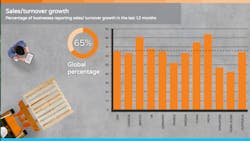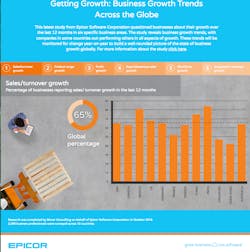Today’s Digital Economy Challenges Distributors
How are distributors getting ahead beyond rethinking the supply chain? They’re not, according to a new research study conducted by Morar Consulting on behalf of Epicor Software.
Doug Smith, Epicor’s director of product marketing, retail and distribution, Epicor, says the new digital economy puts tremendous pressure on distributors to either find new ways of offsetting increasing costs or change the way they conduct business. “Simply put, buyers’ behaviors are changing, and distributors need to adapt quickly to fulfill these new needs,” he says.
Smith continues, “The popularity of large e-commerce sites, with same-day and next-day services, is becoming the norm. This change from traditional bulk shipments to unit shipments drives up cost, resulting in lower profitability for the business. To offset these new requirements, distributors need to improve their efficiency through automation and rethink how they are managing resources.”
He adds, “Investing in new technology—such as integrated enterprise resource planning (ERP), customer relationship management (CRM), and warehouse management solutions (WMS)—is key for distributors to get ahead. These systems automate tasks and allow distributors to manage their resources more efficiently while reducing uncertainty from known variables. Becoming more automated helps distributors reduce shipping costs, become more customer-focused, and able to provide a seamless customer experience.”
To download an executive summary of the survey, go to bit.ly/HP417Epicor.


